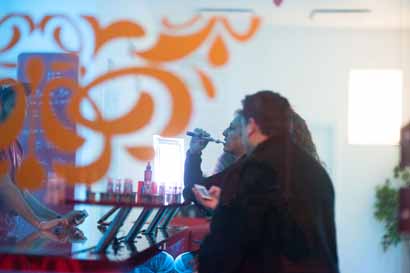Smoke shops in Jordan continue to sell electronic cigarettes despite an 18-month ban by the Ministry of Health on importing and selling these devices, according to a story in The Jordan Times.
A spokesman for the Jordan Customs Department (JCD), Col. Emad Nseir, was said to have told the Times that the department’s anti-smuggling agents had confiscated large quantities of e-cigarettes and e-argilas, and that their efforts would continue through regular inspections.
He said the inspectors responded to complaints from citizens informing them that the devices were still on sale despite the prohibition, and amid reports that the banned items were becoming increasingly popular among schoolchildren.
The ban was imposed due to what the Health Ministry said was the ‘tremendous dangers’ posed to public health by e-cigarettes, which were no less harmful than regular cigarettes and which might be more harmful, according to Hatem Azrui, the Ministry’s spokesperson.
Recently, the Iftaa [fatwa] Department issued an edict declaring e-cigarettes and e-argilas prohibited, but sales seemed to have been unaffected by the ban and the edict.
The JCD official acknowledged that smuggling of the devices was ongoing, while a shopkeeper said demand remained high.
The shopkeeper was said to have told the Times, on the condition of anonymity, that he had bought his merchandise from smugglers and that the business was going on as usual, except that sales assistants had to exercise caution in picking who to sell to.
A consumer quoted by the Times said that he used e-cigarettes which had helped him quit regular cigarettes. “I consulted a physician and he assured me that the e-cigarette is less harmful than tobacco, and I trust him,” he said.

















